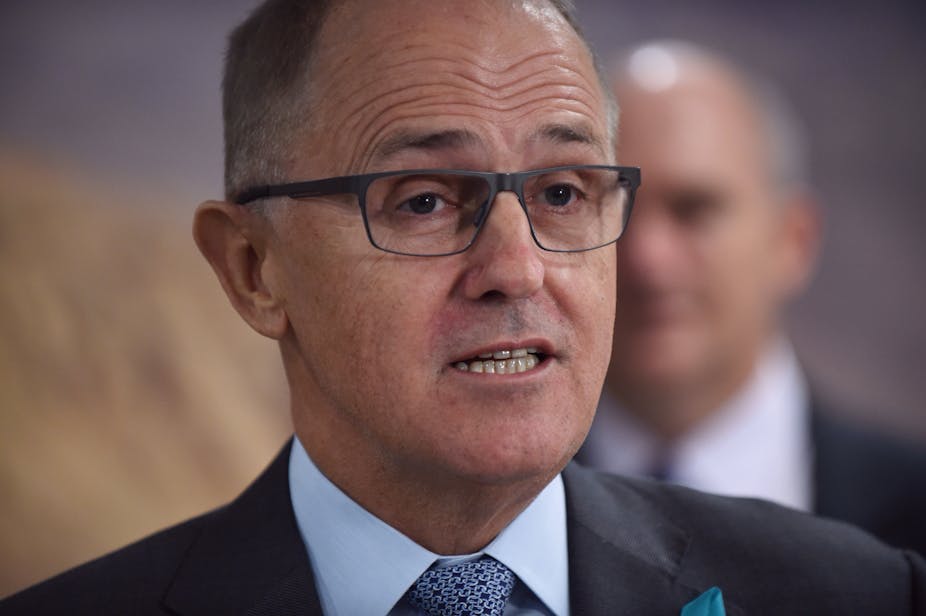Malcolm Turnbull has slapped down Treasurer Joe Hockey over superannuation and said the government last year failed to make the case for budget repair, in comments that will be seen by some Liberals as raising his profile for leadership.
Turnbull, in an address titled “Responsible Economic Leadership” to the Brisbane Club, said it was critical the public had confidence that economic management was in safe and competent hands.
“That means policies need to be carefully thought through, painstakingly explained and be robust enough to withstand rigorous policy debate,” Turnbull said.
Turnbull’s pointed observations come as Tony Abbott has had some setbacks this week in his effort to regroup, including a Newspoll showing Labor extending its two party lead to 55-45%, confusion about a backtrack on automotive assistance, and controversy over his description of Indigenous Australians who live in remote places as making a “lifestyle choice”.
When Turnbull was asked about Hockey’s suggestion – which has been widely panned – that allowing young home buyers access to their super should be considered, he said this would be “a thoroughly bad idea”.
“This is not a government proposal to tap into super to buy a house. This is something that gets kicked around occasionally.”
It was not what the superannuation system was designed to achieve – and housing affordability was a supply side problem, Turnbull said. “You are not going to make housing more affordable by stoking up demand.”
In condemning the government’s failure to persuade the public in 2014 that tough measures were needed, Turnbull was careful to include himself. But, considering they lead the economic argument, the prime minister and the treasurer would be seen as the prime targets of his criticism.
Turnbull said: “We – and I include myself and every member of the government in this criticism – did not do a good enough job in explaining the scale of the fiscal problem the nation faces, and the urgency of taking corrective action.
"In addition there was a deeply felt sense in much of the community that our proposed budget measures were unfair to people on lower incomes when taken as a whole,” Turnbull said.
“In my view the failure to effectively make the case for budget repair was our biggest misstep, because it was a threshold we never crossed.”
But Turnbull said at least the lesson had been learned and last week’s Intergenerational Report “provides a solid platform from which to reboot the budget debate and educate the public about the need for action”.
It was important for the Coalition to make progress on the budget and economic reform. “In Australia, governments delivering good economic and fiscal outcomes are very rarely ejected,” the Howard government being an exception.
“Governments judged to be inept economic managers or presiding over recessions – even recessions caused by global events – on the other hand seldom survive the next election,” Turnbull said.
“At the heart of this is confidence. It is critical that the public have confidence economic management is in safe and competent hands.”
Turnbull repeated his previous line that the time for spin and slogans was over.
“The Australian people want all of us in public life to respect them, by laying out the challenges we face clearly and accurately, not insulting them with exaggeration or oversimplification.
"They expect us to debate the options for dealing with problems honestly, transparently and with open minds.
"This type of debate is a crucial element in allowing reform to be successfully achieved without exorbitant costs from compensating losers. It’s how it generally was achieved in the so-called reform era between 1983 and 2007.”
Turnbull laid out the needed process for difficult reform: highlighting the problem and clearly and repeatedly explaining the need for reform; calculating the costs of inaction; setting out options for change; discussing their merits and disadvantages; choosing the best option and deciding a plan to implement it; and identifying losers from change and to the extent possible helping them adjust.
Turnbull used the examples of the NBN and Australia Post to show how he had used this approach to reform in his own portfolio.

